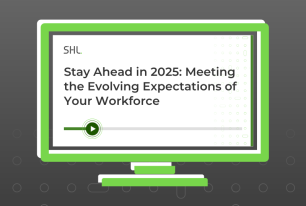3 Steps That Corporate Leaders Can Take to Address Racism in the Workplace
“Racism isn’t just Black people’s problem; it’s everyone’s problem because it erodes the fabric of society.” How to combat racism and racial discrimination.
Share
"Racism isn’t just Black people’s problem; it’s everyone’s problem because it erodes the fabric of society. Leaders at every level must use their power, platforms, and resources to help employees and communities overcome these challenges and build a better world for us all.”
Laura Morgan Roberts and Ella F. Washington,
Harvard Business Review, June 2020
Like many, it has been a challenging week for me – and most of my peers at work. Conflicting messages rattle my brain: “Politics don’t belong in the workplace” and “Respect individual points of view” versus “Black men keep getting murdered by police” and “Complacency of those of us with societal privilege is the problem”. Which brings to mind: ”What are my responsibilities as a leader in business?”
Institutional silence is very loud, as it demonstrates having the perspective that personal matters are not large, cultural, and political concerns. As a feminist of an earlier generation, I grew into my political identity by the mantra “the personal is political”. The general improvement for women at work, having economic power, and the ability to set the agenda, grew out of addressing our personal reality: control over our bodies, childcare options, personal economic control, and our safety. While challenges remain, progress has been made. If this past week or the many other recent incidences of racially-based institutional violence is the measure, progress with respect to race is nowhere near enough.
The murder of George Floyd is not upsetting because it is unique. It is upsetting because it is merely the next occurrence evidencing pervasive, persistent, insidious institutionalized racism. It is personal to many of us, regardless of our color, and it is definitely political by the very fact that it is part of a continuous pattern, which is impacting our work.
This is not a US problem or phenomenon. Disproportionate institutional violence against minorities, and specifically Black people, is documented all over the world. These realities impact our co-workers, with the most impacted learning coping behaviors required to survive in a white world and managing the pressure of keeping the workplace apolitical in the face of endemic prejudice and real danger.
Roberts described it as a “very loud silence, confirmation for some that their racial identity is not professional and that their social reality in the wake of tragedy is not as valid as traumas shared by the majority.” The result is that our co-workers must measure and limit the extent to which they share, grieve, or vent. It burdens them disproportionately and can create a sense of being isolated and unsafe.
It is us – the majority – who need to engage. We need to exhibit some personal courage and manage our own fear of inadequacy and guilt. Perhaps we can only sympathize and not empathize but that is not a pass to stay quiet. Clearly, we – those with privilege – are not doing enough, as we are still having conversations about these tragedies in the present tense, instead of academic discussions about a long–ago, shameful history of what humans have wrought upon each other out of greed, ignorance, and fear.
This is not a US problem or phenomenon. Disproportionate institutional violence against minorities, and specifically Black people, is documented all over the world.
Roberts, in her Harvard Business Review article, cites 3 clear steps that corporate leaders can take to address racism in the workplace: acknowledge – affirm, – act.
I acknowledge that my non-white co-workers endure harm directly or indirectly through various forms of aggression and micro-aggression almost daily as part of our reality. It is my responsibility to educate myself and learn and understand how racism continues to operate in our world and fight against it.
I affirm that racism is a problem and that all people have a right to feel safe and respected. I have a duty to do what I can to provide that safety where I can. I am willing to listen to my people, talk about what is happening, and make changes to improve the world we share.
I need to act and use the power I have to affect change, in any way possible and as required.
SHL’s Every1Matters has been the first step at SHL to bring diversity to life so that we take action to improve our company and our products and – indirectly – the world.
It is hard, but that does not mean it is not worth doing. A quote that has carried me through life comes from the philosopher Seneca: “It is not because things are difficult that we do not dare, it is because we do not dare that they are difficult.” To bring about change, we have to dare to do something more than what we have done in the past. It will become easy if we are able to overcome our fear, guilt, and indifference. What will emerge is a rainbow of humanity where race is not a limiting characteristic, rather than some of us suffering at the hands of the rest of us, either by our actions or as we stand by and do nothing.
I would like to share some resources for all of us to educate and engage our time and, where possible, money in addressing racism:
- Black Lives Matter Black Lives Matter Foundation is a global organization in the US, UK, and Canada, whose mission is to eradicate white supremacy and build local power to intervene in violence inflicted on Black communities by the state and vigilantes. A host of information and facts about the challenge, the reality, and actions you can take.
- NAACP Founded in 1909, the mission of the National Association for the Advancement of Colored People (NAACP) is to secure the political, educational, social, and economic equality of rights in order to eliminate race-based discrimination and ensure the health and well-being of all persons.
- Voices of Black British people reacting and explaining how this has affected them:
- Head of D&I at Monzo (UK owned) provides key pointers to organisations
Reading Lists
- Books to educate ourselves to ensure we listen and understand black history and the history of racism
- UK Anti-Racist reading list
Educate Yourself for Free
- Yale University Course on African American History
- University of Exeter Course on British Imperialism
US Charities
- George Floyd Memorial Fund: The George Floyd Memorial Fund was set up by Floyd’s brother Philonisein the wake of his death. As Floyd’s family seek justice for his death, a separate petition has been signed by over 10 million people which calls for the officers involved to face criminal charges (so far one officer, Derek Chauvin, has been charged with second-degree murder and second-degree manslaughter).
- Reclaim the Block: Reclaim the Block campaigns for a safer Minneapolis by organizing for violence prevention, housing, resources for youth, emergency mental health response teams, and solutions to the opioid crisis to be funded over the police. The organization also spearheads community initiatives that aim to reduce the reliance on the police across the city.
UK Charities
- The black curriculum
- Black thrive (for wellbeing) have events such as community zoom drop ins
- As the only national heritage centre of its kind in the UK, the Black Cultural Archives helps preserve and celebrate the histories of African and Caribbean people in Britain by helping members of the community “find positive representations of themselves in history and culture.”
- Stand Up ToRacism are standing in solidarity with those protesting police brutality in the US by holding UK–wide days of action via socially distanced protests following an online meeting including US activists from Minneapolis and New York, Diane Abbott MP, and Claudia Webbe You can also support them by donating to their cause.
- Show Racism the Red Card (SRtRC) is the UK’s largest anti-racism educational charity. It was established in January 1996, thanks in part to a donation by then Newcastle United goalkeeper Shaka https://www.theredcard.org/ourstory









